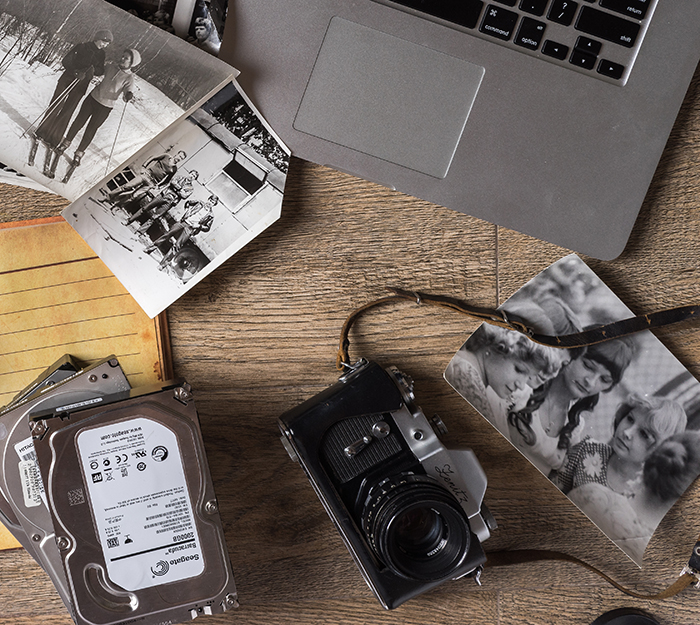
When it comes to passing down family memories, there’s nothing like the visual impact of a photograph.
Photo frames, custom ornaments, and other similar memorabilia make some of the most popular gifts during the holiday season. Family photos can remind us where we came from, preserve valuable information, and bring up warm, fun, and often comforting thoughts of times and people gone by. Sometimes, they just make us smile.
“Capturing a moment in time isn’t just about securing a memory — it can help you appreciate your life more every day,” advises Gretchen Rubin in Good Housekeeping. “Photos tilt your memories towards the good experiences you’ve had, simply because you’re more likely to take photos of joyful times.”
These days, people enjoy capturing photographic images more than ever. While most of those are safely stored in digital files, we often aren’t as efficient when it comes to preserving the analog photos and negatives taken before the advent of digital cameras and smartphones. For many, that can mean those irreplaceable memories are at risk of fading into obscurity as they’re stored away in some damp basement or dusty attic.
Fortunately, preserving your old analog photos without professional assistance need not be difficult, especially with some of the user-friendly tools now on the market. Consider these tips for making sure your personal history is saved for future generations.
Handle them with care
You may be used to carelessly flipping through your older photos, but the truth is the dirt and oil on your hands can easily accumulate and cause damage to old images. Experts recommend wearing non-scratching, microfibre or nitrile gloves as you sort and process them. Don’t write on them at all (even the backs), and avoid grouping or attaching them with paper clips, rubber bands, tape, glue or other fasteners.
Store them protectively
Store loose analog photos and negatives separately from each other in acid-free boxes or in archival-quality photo albums (avoid albums with colour pages and/or those labelled “magnetic” or “no stick”). Keep the boxes or albums in rooms that are stable, dry (with only 30% to 40% relative humidity) and clean. Minimal exposure to light, radiators, vents and atmospheric pollutants is ideal, and colour photos and film negatives are best stored at temps of 40°F or below.
Convert analog to digital
Of course, the safest way of keeping your photos safe is to make them digital, so they can be safely stored in the cloud. Fortunately, Kodak lists several scanners on Amazon that can help you make that switch efficiently and effectively, including the self-contained Kodak Scanza, which can almost instantly process shots taken on analog film (in sizes of 35mm, 126, 110, Super 8 and 8mm) and convert them to a digital JPG format without need of a flatbed scanner, processing lab or even a computer. Other handy tools include Kodak’s lightweight, collapsible Mobile Film Scanner which can instantly store old negatives and slides in your smartphone, and Kodak’s Mini Digital Film Scanner, which performs like the Scanza but is palm-sized for easy transport.
Make sure your new images last a lifetime with the Kodak Photo Printer Dock.
The dock allows you to print out special shots to place in a handmade or other decorative frame, or give as gifts. When you wish to go from digital to analog, simply connect your smartphone, iPad, digital camera, or USB Memory Stick to edit and print colourful, detailed 4x6 photos. The photos won’t bleed or fade — and they will be waterproof — because photos printed from the Dock feature a special laminated protection layer. Your analog photos are irreplaceable and well worth keeping safe, for your enjoyment and the enjoyment of future generations. Consider investing in the materials and tools that can make the preservation process easy and efficient for all. The holidays are a special time for reflection on our families and family memories, and restoring photographs can be a great way to put a little extra magic into a heartfelt gift.